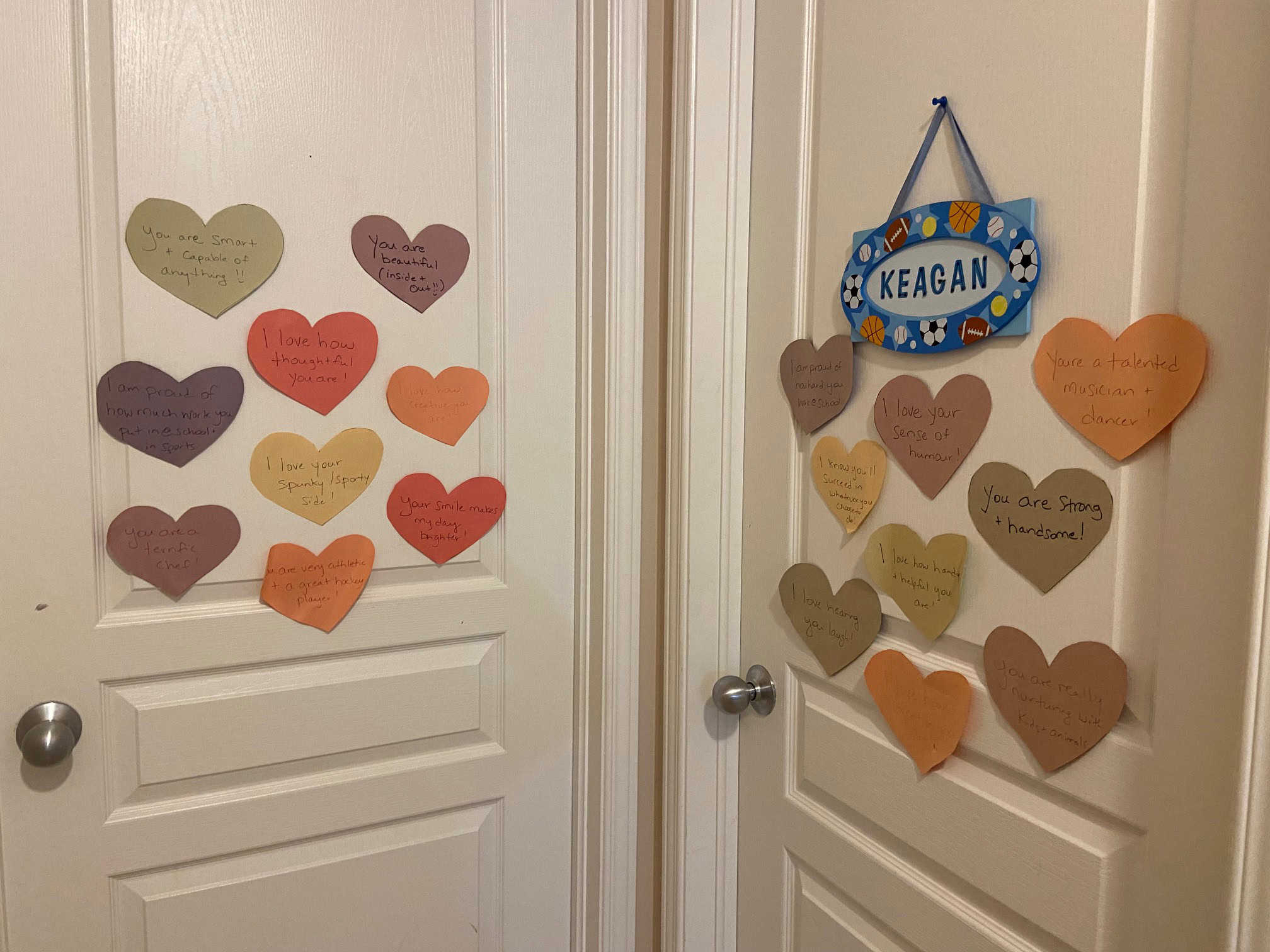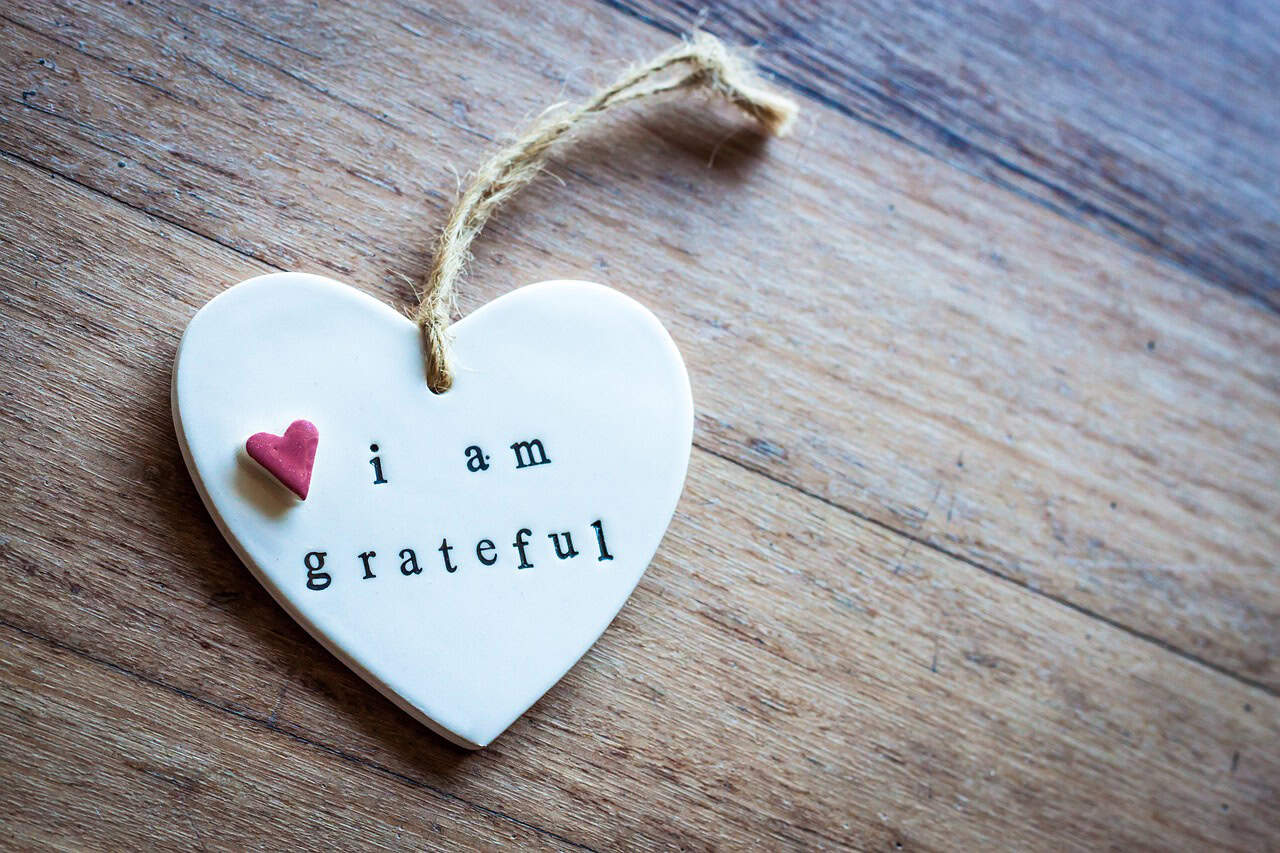“The deepest principle in human nature is the craving to be appreciated.”
— William James
One of the most common things I hear women say is that they don’t feel appreciated.
Many grew up in dysfunctional families with critical parents, where there was not only a lack of appreciation, but positive mirroring of any kind. They also had too much responsibility too early in life, learning to put their needs last and to focus on what everyone else needed, to the detriment of their own wellbeing.
(Note: This happens to men too…I just happen to work with women.)
My family was like this. My mom was so critical that I don’t remember hearing her say anything positive to me or about me while she was alive. Anger and frustration were easily expressed…while love, affection and affirmation were not. I understand now that she was overwhelmed and couldn’t give what she didn’t have to give, and so passed the dysfunction down from her generation to mine.
By the time I left home at 17, I had very little self-esteem or sense of my worth. This led to a series of poor relationship choices and over-giving to compensate for a deep sense of not being “good enough.”
My story is the story of so many people, because in the Baby Boomer generation, the focus was on survival and providing for the family. Little was known about childhood psychology and the need for positive mirroring and emotional support for a child to develop a healthy sense of self-worth.
Thankfully, all is not lost. We can learn how to express appreciation now and better affirm ourselves, our loved ones, and future generations. We each can choose to be cycle breakers, and to create healthier relationships for ourselves and others.
What appreciation is
“Appreciation can make a day, even change a life. Your willingness to put it into words is all that is necessary.” — Margaret Cousins
Let’s start with a definition…
Appreciation involves recognizing and valuing the qualities, contributions and efforts of others. It goes beyond mere acknowledgment (e.g. “thanks”) to really amplifying the good we see in others (e.g. “I really love your thoughtfulness.”). This fosters healthy self-esteem and a deeper emotional connection.
Different forms of appreciation include verbal praise, written notes, acts of kindness, quality time, and non-verbal gestures (like smiles, nods and winks).
The benefits of appreciation are many:
-
- Psychological benefits: Studies show that appreciation can reduce stress, improve mental health, and increase resilience and self-confidence, benefiting both personal and professional relationships.
- Emotional impact: Expressing appreciation can boost the mood of both the giver and the receiver, enhancing overall well-being and happiness for both parties.
- Stronger relationships: Appreciation builds rapport with the person you share it with, promoting a deeper connection and more positive relationships. We all like to feel valued, and tend to feel closer to the people we feel most valued by.
Ways to express appreciation to others
“Silent gratitude isn’t very much use to anyone.”
— G.B. Stern
So often, we think positive things about people yet forget to share what we’re thinking, which robs both us and them of a precious gift.
I was determined to break the cycle of negativity with my children and to give them the encouragement and emotional support I did not receive. I read books on self-esteem and conscious parenting to learn the skills and techniques I was lacking.
One way I show my kids that I see and appreciate them is through my attention: I stop what I’m doing when they come home from school, giving them a hug, and asking about their day. Meals are family time (no TV/phones) where we talk about anything and everything, but also discuss tough subjects so they know their voice matters and they have someone to trouble shoot problems with. I show them respect for their ideas and point of view, even if they are different from mine. And they know they’re my #1 priority.
I also like to provide verbal and written affirmation: I write them little love notes that I put in their lunches (randomly or to support when they are facing challenges). Every birthday I share in their card what I most admire about them. The attached photo shows hearts with things I love about each child I put on their bedroom doors. I did this years ago and thought as teens they would take them down so their friends wouldn’t see, but interestingly enough they have left them up!

We do many activities as a family so they know I appreciate spending time with them. I like to do special activities with each child that revolves around their individual interests, and to take an interest in what matters to them (even if it’s not my “thing”). We celebrate each other’s uniqueness and achievements as a family with special dinners, gifts, etc., and I teach my kids to appreciate and celebrate each other rather than compete.
Some simple ways you can express appreciation to others include:
-
- Verbal affirmations: While a simple “thank you” is good, more elaborate compliments can make a significant impact. Be specific about what you appreciate.
- Written notes: A thoughtful card or a quick email expressing gratitude can be a lasting reminder of your appreciation.
- Acts of service: Doing something helpful for someone else, like running an errand or cooking a meal, can show your appreciation in a tangible way.
- Public recognition: Acknowledging someone’s efforts in front of others—whether in a meeting or on social media—can amplify the impact of your appreciation.
- Gifts: Small, meaningful gifts can serve as a physical representation of your appreciation, showing that you value the person. Even better if they are personalized / unique to that person!
- Quality time: Spending time together can demonstrate your appreciation for someone, reinforcing your relationship through shared experiences.
How to affirm yourself
“What we appreciate appreciates.” — Marianne Williamson
So what do you do if you did not receive enough appreciation in your childhood and your self-esteem suffered as a result? Can you fix that now?
Yes, you can absolutely build your self-esteem now by learning how to appreciate and affirm yourself (and surrounding yourself with affirming relationships).
There are many ways I help my clients create greater self-esteem in my programs, including using hypnosis and mental reprogramming. Here are a few simple ideas you can do on your own:
-
- Positive affirmations: Replace critical thoughts about yourself with affirming statements about your strengths and achievements. For example, remind yourself of past successes and what you bring to the table in your relationships.
- Gratitude journaling: Keep a journal where you regularly write down things you appreciate about yourself. Take time to reflect on your qualities and accomplishments. This practice can shift your focus from what you lack to what you value in yourself.
- Celebrate small wins: Acknowledge even minor achievements in your daily life. This practice can enhance your sense of self-worth and motivate you to pursue larger goals.
- Surround yourself with positive people: Engage with supportive people and environments that reinforce your value. Seek out relationships that uplift and support you.
- Set boundaries: Recognizing your worth also involves knowing when to say no and when to exit unhealthy relationships.
So often, we want from others what we won’t give to ourselves. Feeling valued and appreciated really does start as an internal job…because once you appreciate yourself and stand in your value, you’ll never again accept anyone in your life who doesn’t truly appreciate you!
Sending you lots of appreciation for the amazing person you are!
xo Karen
Upcoming training
If you want to learn more about healthy relationships, I’m excited to announce a brand-new free training called: Empowered Love: Creating healthy, happy relationships! 💖
Here’s what we’ll be covering:
-
- Common myths and truths about love
- The differences between healthy and toxic love
- Why good people choose bad partners
- Why it feels like you’re stuck on repeat
- How to empower yourself in love!
Register for this all-new training here!
Resources
For more on this topic, see:
Share your ideas
What makes you feel most appreciated? How do you show appreciation? Please share…



0 Comments